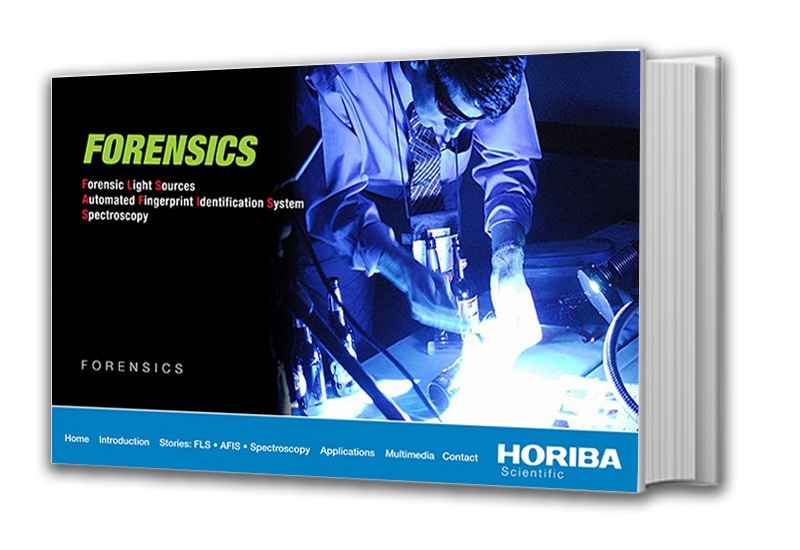The Forensics eBook by HORIBA focuses on applying forensic science in crime investigation, highlighting the use of advanced technologies like forensic light sources, automated fingerprint identification systems, and spectroscopy.
This eBook showcases real-world stories where these technologies have been pivotal in solving crimes, identifying suspects, and enhancing the accuracy of investigations. The content spans various forensic disciplines, demonstrating the significant impact of these tools in modern law enforcement and criminal justice.


 Download the eBook
Download the eBook
Overview
This Forensics eBook provides a comprehensive overview of contemporary forensic science techniques and their application in criminal investigations. It delves into the use of advanced forensic technologies such as Forensic Light Sources (FLS), Automated Fingerprint Identification Systems (AFIS), Spectroscopy, Micro-XRF analysis, and Raman spectroscopy. These tools are pivotal in the detection and analysis of evidence such as gunshot residues, explosive materials, counterfeit drugs, and forged documents.
Highlighted through various case studies, this eBook illustrates how these technologies have been instrumental in solving crimes, including cases that had gone cold or were particularly challenging due to the lack of visible evidence. For instance, FLS has been used to identify bodily fluids at crime scenes, AFIS has led to the apprehension of suspects through unlikely fingerprint matches, and Raman spectroscopy has aided in the non-destructive identification of controlled drugs and the analysis of explosive materials.
Additionally, this eBook explores the use of spectroscopic techniques in the fight against food fraud, showcasing how analytical chemistry can uncover mislabeled and adulterated dietary supplements. This includes the identification of fake fish oil supplements and misbranded krill oil products, emphasizing the health risks associated with such fraudulent practices.
Forensic science's role extends beyond criminal investigations, with applications in verifying the authenticity of art and detecting food fraud. The incorporation of detailed forensic analyses underscores the importance of these technologies in enhancing the accuracy and efficiency of forensic investigations, providing law enforcement agencies with the means to solve crimes more effectively and ensure justice is served.

 Download the eBook
Download the eBook
This information has been sourced, reviewed, and adapted from materials provided by HORIBA.
For more information on this source, please visit HORIBA.